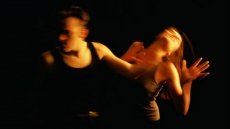TORONTO — A juicy biography on the daughter of Soviet dictator Joseph Stalin has taken the literary world by storm and, to many readers' surprise, it was written by a Canadian.
Toronto author Rosemary Sullivan is behind "Stalin's Daughter: The Extraordinary and Tumultuous Life of Svetlana Alliluyeva," which has won the $40,000 British Columbia National Award for Canadian Non-Fiction and the $60,000 Hilary Weston Writers' Trust Prize for Nonfiction.
It's also on the short list for the $25,000 RBC Taylor Prize, which will be awarded Monday in Toronto.
"I spoke with my U.S. editor and it seemed right that a woman should write this book and a Canadian," Sullivan said recently by phone.
"Because I could be outside the story of the Cold War tensions between the two superpowers, the United States and the Soviet Union."
The Montreal native, who has written five biographies, came into "Stalin's Daughter" after reading Alliluyeva's obituary in the newspaper in November 2011.
She was struck by two of Alliluyeva's remarks in the obituary. In one, she said she would always be a "political prisoner" of her father's name.
"Then she also said, 'You can't regret your fate, but I do regret my mother didn't marry a carpenter,'" said Sullivan. "I thought, 'That's quite a range of sensibility. She must be fascinating.'"
Sullivan met Alliluyeva's American-born daughter, Chrese Evans, and got permission to quote from her mother's unpublished books and letters.
She interviewed about 40 people for the book and looked at state government archives in Russia as well as CIA, FBI and State Department files in the U.S.
What she found was "a bit of everything: spies, love affairs," Sullivan said with a laugh.
"I was worried it was quite long and esoteric. Who wants to read about Stalin's daughter? But the reviews call it a page-turner and I think it's a fairly obsessive read."
Alliluyeva was raised in her father's inner circle of power but was powerless and often followed by secret police, said Sullivan.
Her mother committed suicide when Alliluyeva was six and her father was sentimental about his daughter until she turned 16.
That's when she started a platonic affair with Aleksei Kapler, a Jewish Soviet filmmaker, which outraged Stalin.
"He sent her first lover to the gulag for 10 years," said Sullivan, who bought some of Alliluyeva's correspondence at auction and gave the material to the University of Toronto.
"You can see it's a pretty complicated story."
Alliluyeva went through two marriages and divorces and had a couple of children before finding love with ailing Indian Communist politician Brajesh Singh in Russia.
When he died, she took his ashes to India, where she walked into the American embassy and asked for asylum in Switzerland. There, she sold the rights to her memoir, "Twenty Letters to a Friend."
She then moved to the U.S., where "there were more people at the airport to meet her than had been there to meet the Beatles," said Sullivan.
Alliluyeva went into seclusion, living in Princeton, N.J. She married architect Wesley Peters, with whom she had daughter Chrese, but they split up after two years and she was broke.
"I think the birth of Chrese saved her mother," said Sullivan. "I think Svetlana wouldn't have made it if she hadn't had to stay in the world for her daughter."
The other Taylor Prize finalists include "Sixty: The Beginning of the End, or the End of the Beginning?" by previous prize winner Ian Brown of Toronto, and "This Is Happy" by Toronto's Camilla Gibb.
CBC personality Wab Kinew of Winnipeg is a contender with "The Reason You Walk," and Ottawa's David Halton made the cut for "Dispatches from the Front: The Life of Matthew Halton, Canada's Voice at War."



